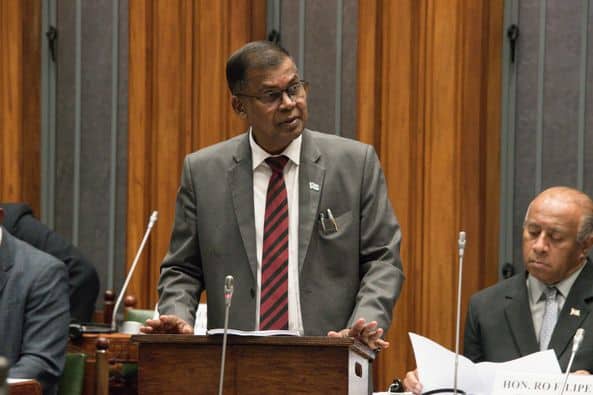Fiji unites agencies in tax crackdown
Fiji’s revenue and enforcement agencies have formed a coordinated taskforce to combat tax crime, signalling stronger action against fraud, under-reporting, and financial non-compliance.

Fiji has taken a decisive step toward combating financial wrongdoing with the launch of a cross-agency Tax Crimes Taskforce. The new alliance brings together the Fiji Revenue and Customs Service and multiple enforcement bodies, representing a shift from fragmented oversight to unified action.
Historically, tax enforcement in Fiji operated in separate lanes. Customs investigated import irregularities. Anti-fraud units looked at criminal behaviour. Financial agencies monitored suspicious transactions. Each group worked earnestly but separately. In the gaps between those silos, tax leaks occurred. For a country where public revenue underpins national development — roads, healthcare, digital transformation — leakage has tangible consequences. Every dollar that slips through the system undermines public trust.
The taskforce flips the model entirely. It positions tax compliance as a shared national responsibility, not simply an administrative requirement. With the MoU signed, agencies can now exchange intelligence, coordinate investigations, and move faster when a suspected case arises. Instead of passing files between departments, Fiji now has a single strike force with the authority and the mandate to trace tax crime across the full chain of financial behaviour.
This push arrives at a critical moment. As Fiji’s economy expands — with tourism, construction, and services driving growth — cash-based transactions remain prevalent. Cash leaves fewer digital footprints, making under-reporting temptingly easy. Technology, ironically, is also part of the solution. Digital payments are becoming more common, reducing ambiguity and creating clearer financial trails. For FRCS, this evolution is an opportunity to modernize tax administration, and the taskforce strengthens that effort.
While some businesses may view this coordinated crackdown with anxiety, transparency ultimately supports economic stability. Investors prefer environments where financial rules are enforced consistently and fairly. Tourists gravitate to destinations that demonstrate governance maturity. Strong compliance doesn’t suppress enterprise; it enables it by ensuring legitimate businesses aren’t undercut by non-compliant competitors.
The move also signals cultural change. Fiji is moving away from the perception of tax as a negotiable obligation. The establishment of a taskforce communicates that compliance is not optional, and that dishonesty carries real consequences. Rather than simply issuing warnings, Fiji is now prepared to act — decisively and collectively.
If the taskforce succeeds, it will not just improve revenue collection. It will reinforce fairness. It will demonstrate accountability. And it will prove that economic growth and integrity are not opposites — they are partners.





